
The U.S. Constitution, featuring profiles on Founding Fathers, a comprehensive collection of amendments, and a wealth of historical documents. Online since 1995.
-
 Read more: Trump Just Sent a “Massive Armada” to Iran – And Warned the Next Attack Will Be “Far Worse”
Read more: Trump Just Sent a “Massive Armada” to Iran – And Warned the Next Attack Will Be “Far Worse”President Trump announced Wednesday that a “massive Armada” is heading to Iran. Aircraft carrier Abraham Lincoln. Three destroyers. 5,000 American troops. And a warning to Tehran: make a nuclear deal or “the next attack will be far worse.” The threat…
-
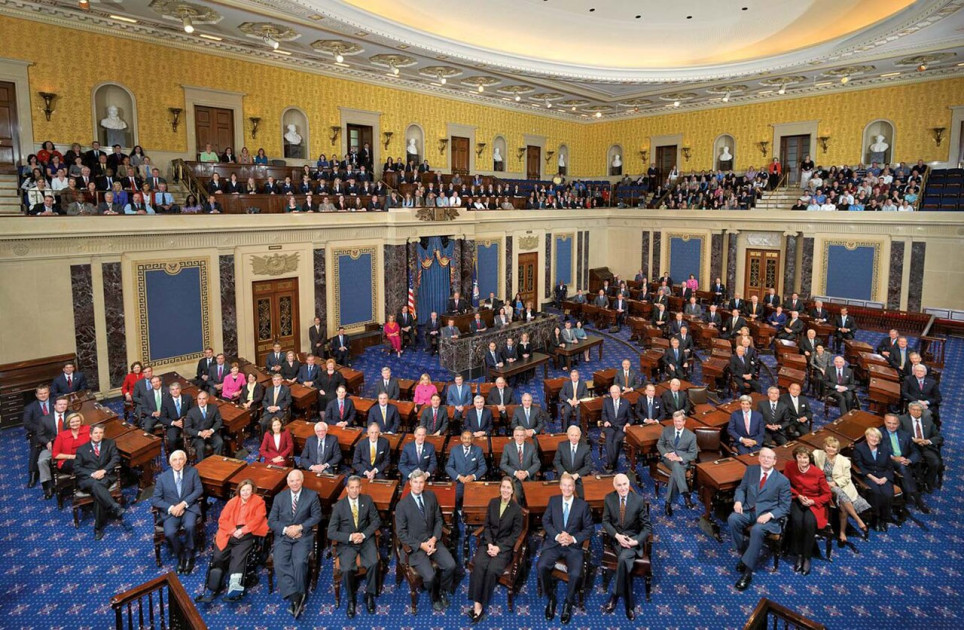
Senate Republicans Split on Strategy to Separate Homeland Security from Spending Package
Read more: Senate Republicans Split on Strategy to Separate Homeland Security from Spending PackageThe silent halls of the U.S. Capitol are vibrating with the tension of a looming Friday deadline as a long – standing Republican consensus begins to dissolve. With less than 72 hours until a partial government shutdown, a group of…
-
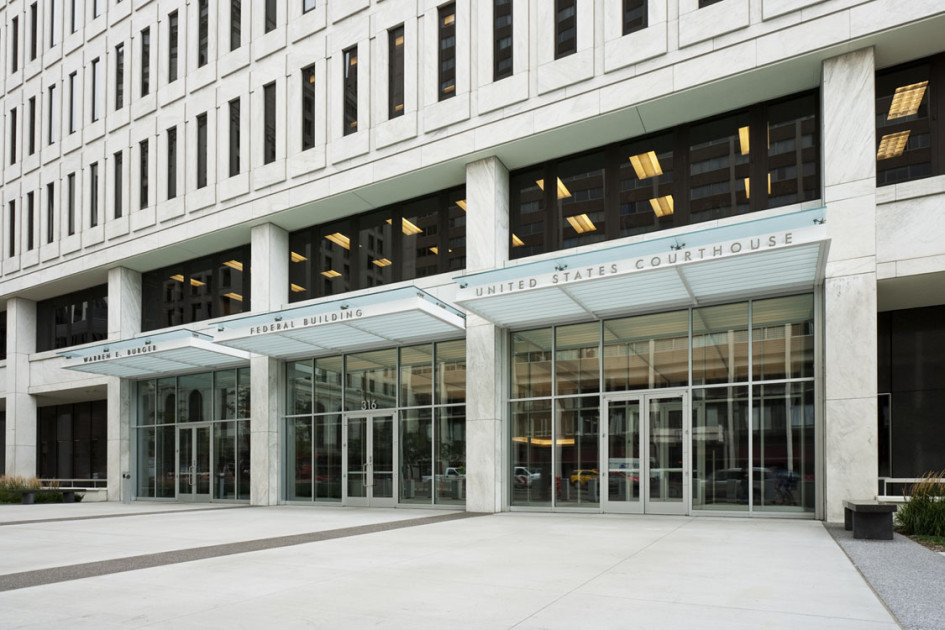
ICE Contempt Hearing Looming for Acting Director Todd Lyons
Read more: ICE Contempt Hearing Looming for Acting Director Todd LyonsThe judicial bench in Minnesota has become a high-stakes arena where the legacy of conservative jurisprudence is clashing with the modern realities of federal immigration enforcement. As “Operation Metro Surge” continues to draw fire from local leaders, a prominent federal…
-

Man Arrested for Spraying Rep. Ilhan Omar with Apple Cider Vinegar from a Syringe
Read more: Man Arrested for Spraying Rep. Ilhan Omar with Apple Cider Vinegar from a SyringeRepresentative Ilhan Omar (D-Minn.) was addressing a crowd of constituents, calling for the impeachment of Homeland Security Secretary Kristi Noem, when the peace of the meeting was shattered. Anthony James Kazmierczak, 55, reportedly walked down the center aisle and lunged…
-

Florida Strips License of Nurse Who Wished Childbirth Trauma on Karoline Leavitt
Read more: Florida Strips License of Nurse Who Wished Childbirth Trauma on Karoline LeavittIf offensive political speech is legal, can the state still yank a medical license? The “Good Moral Character” requirement for professional licensing is undergoing a trial by fire in the Sunshine State. On Wednesday, the Florida Department of Health moved…
-

‘I’m Against the Violence’: Melania Trump Breaks Silence After Second US Citizen Killed by Federal Agents in Minnesota
Read more: ‘I’m Against the Violence’: Melania Trump Breaks Silence After Second US Citizen Killed by Federal Agents in MinnesotaAmid the smoke and shouting of a city on the brink, a surprising voice has emerged from the White House to appeal for calm. While Minneapolis remains a powder keg following the fatal shooting of a local nurse by federal…
-

VCU Health Investigates Nurse Over Viral Videos Suggesting Sabotaging ICE Agents And “Get Them Sick”
Read more: VCU Health Investigates Nurse Over Viral Videos Suggesting Sabotaging ICE Agents And “Get Them Sick”The sanctity of the patient – provider relationship, a bedrock of the American medical system, is facing a modern crisis as a viral digital trail leads directly into the heart of a major Virginia hospital. What began as a series…
-
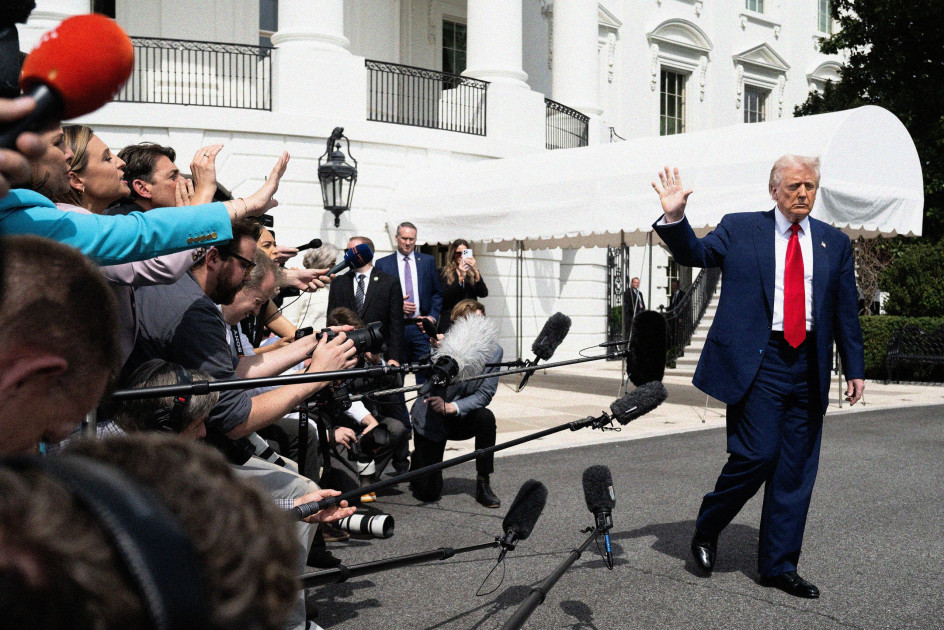
Trump Reacts to Looming Standoff Over Kristi Noem
Read more: Trump Reacts to Looming Standoff Over Kristi NoemWith a January 30 government shutdown deadline looming and a second fatal shooting in the Midwest fueling a congressional mutiny, the nation waited for a single word from the one man who determines the fate of the embattled Department of…
-
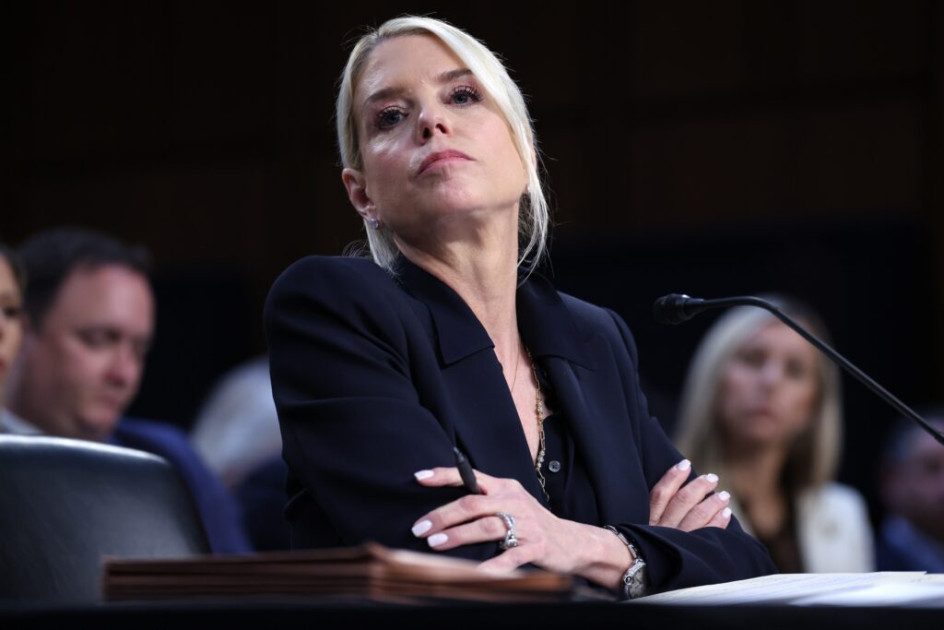
Trump Admin Win: Federal Court Overturns Restrictions on ICE, Giving Agents Free Rein Against Protesters
Read more: Trump Admin Win: Federal Court Overturns Restrictions on ICE, Giving Agents Free Rein Against ProtestersThe legal handcuffs restraining federal agents in Minnesota have been abruptly removed, setting the stage for a potentially explosive escalation between immigration enforcers and the activists trying to stop them. As part of the Trump administration’s aggressive “Operation Metro Surge,”…
-
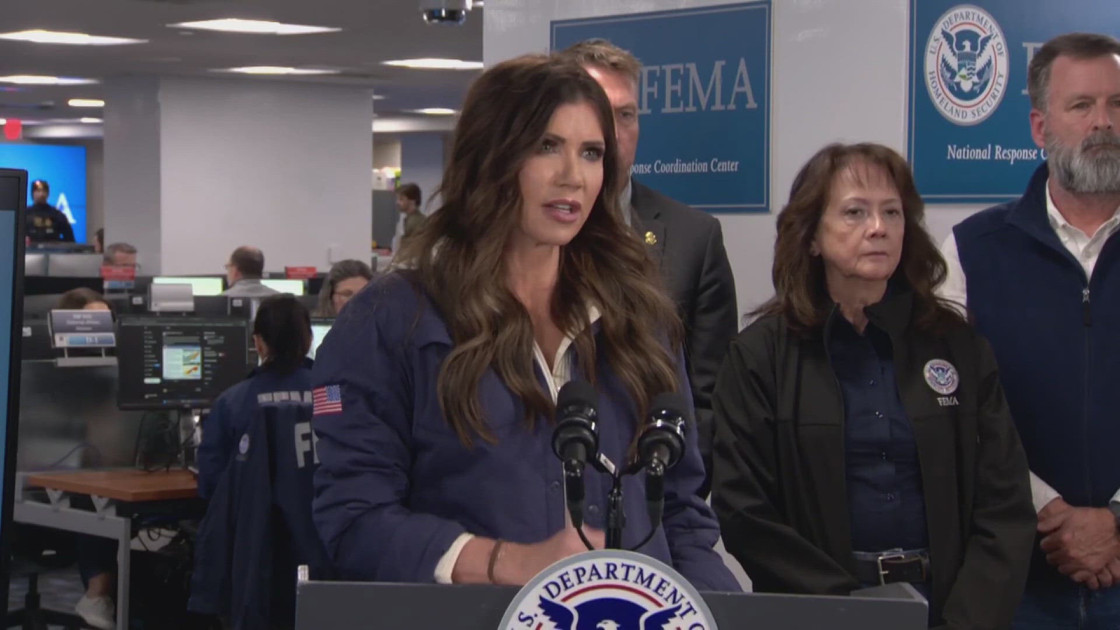
Over Half of House Democrats Back Impeachment Resolution Against Kristi Noem
Read more: Over Half of House Democrats Back Impeachment Resolution Against Kristi NoemThe political atmosphere in Washington has reached a fever pitch as more than half of the House Democratic caucus formally moves to impeach Homeland Security Secretary Kristi Noem. This isn’t just a routine policy disagreement – it’s a high-stakes constitutional…
-

Federal Judge Weighs Emergency Halt to Trump’s Immigration Crackdown in Minnesota
Read more: Federal Judge Weighs Emergency Halt to Trump’s Immigration Crackdown in MinnesotaThe frozen streets of Minneapolis have become the epicenter of a historic constitutional collision as the state of Minnesota attempts to legally “evict” thousands of federal agents. In a high-stakes emergency hearing on Monday, lawyers for the state argued that…
-

Feds Now Blame Protesters for Destroying Evidence at Scene Where They Shot ICU Nurse
Read more: Feds Now Blame Protesters for Destroying Evidence at Scene Where They Shot ICU NurseThe Deputy U.S. Attorney General blamed protesters Monday morning for destroying evidence at the scene where federal agents shot and killed Alex Pretti Saturday. Minnesota blamed federal agents for the same thing. A federal judge already issued a restraining order…
-

Federal Agents Kill Minneapolis VA Nurse During Immigration Protest as Video Evidence Contradicts Official Account
Read more: Federal Agents Kill Minneapolis VA Nurse During Immigration Protest as Video Evidence Contradicts Official AccountAlex Jeffrey Pretti was an ICU nurse at the Minneapolis Veterans Affairs Medical Center. He spent his career caring for the veterans this country sent to war. Saturday morning, January 24, federal agents shot and killed him on a Minneapolis…
-
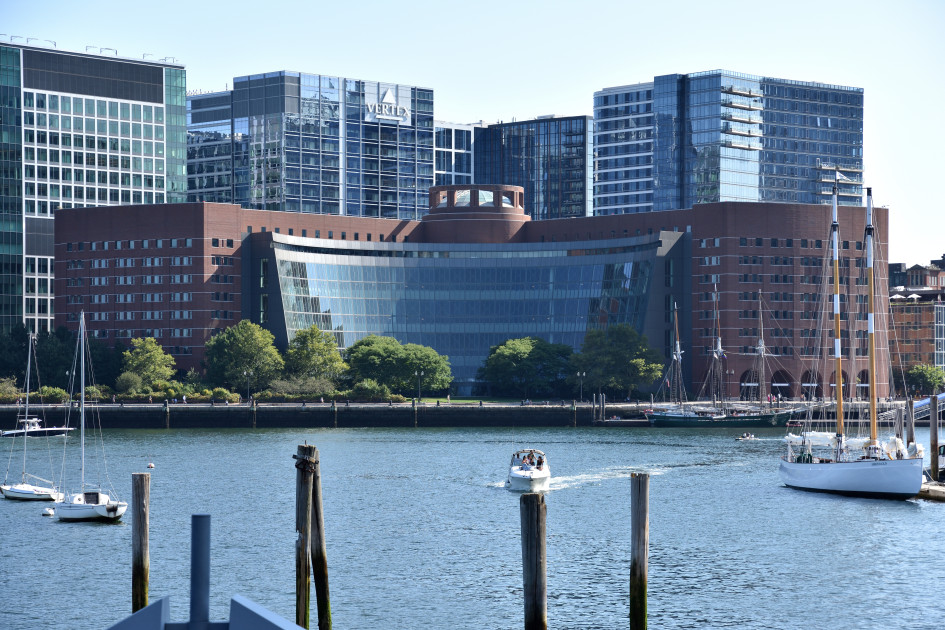
Federal Judge Blocks Deportation of Pro-Palestinian Student Protesters
Read more: Federal Judge Blocks Deportation of Pro-Palestinian Student ProtestersA Reagan-appointed judge has officially halted the administration’s efforts to purge college campuses of non-citizen activists, declaring the government’s tactics a “breathtaking” violation of the First Amendment. The “Remedial Sanctions” of Judge William Young U.S. District Judge William G. Young…
-
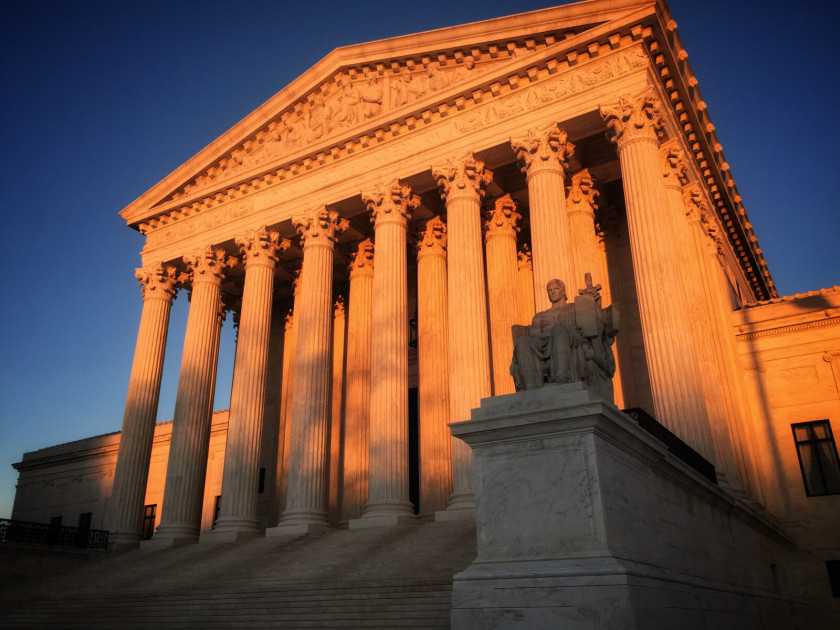
Purging the Bench: How the “Rogue Judge” Impeachment Could Break the Judiciary
Read more: Purging the Bench: How the “Rogue Judge” Impeachment Could Break the JudiciaryThe long – standing tradition of judicial independence is facing its most severe test as the White House signals its full support for a campaign to remove sitting federal judges. By labeling specific jurists as “partisan activists,” the administration is…
-
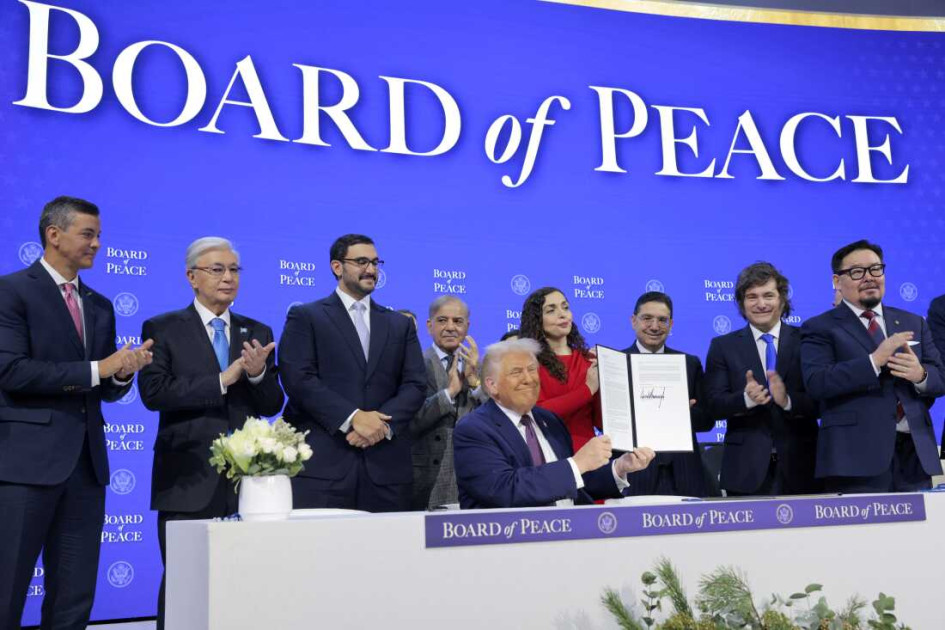
Trump Just Kicked Canada Off His “Board of Peace” – Who Is Still On It (And Who Refuses To Join)?
Read more: Trump Just Kicked Canada Off His “Board of Peace” – Who Is Still On It (And Who Refuses To Join)?President Trump signed his “Board of Peace” into existence Thursday at the World Economic Forum in Davos. The organization was created to oversee Gaza reconstruction. Trump now describes it as an institution to rival the United Nations. By Friday, he’d…
-
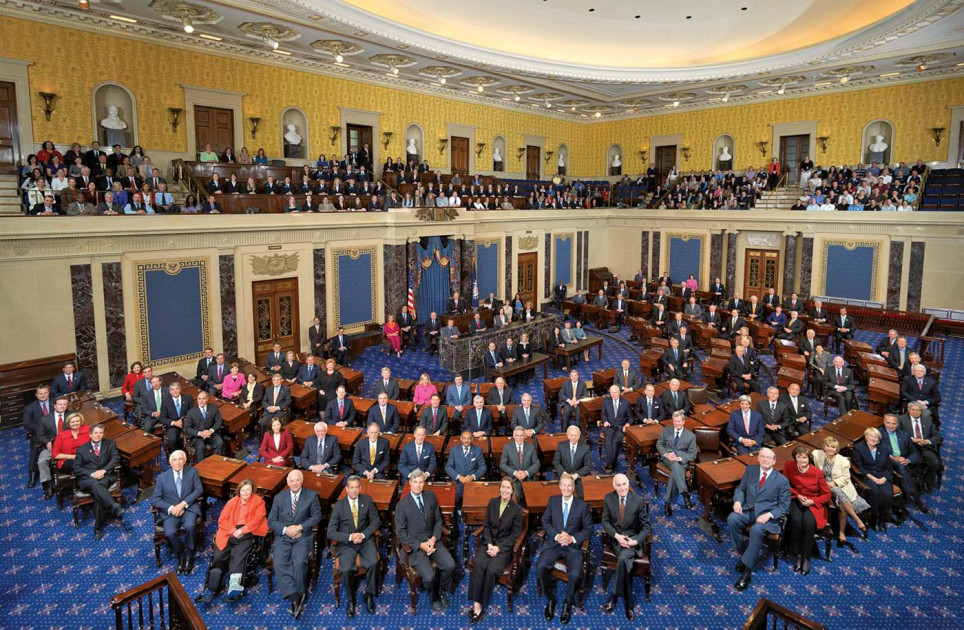
Senate Democrats Break from Leadership Over ICE Funding – Is a January Shutdown Inevitable?
Read more: Senate Democrats Break from Leadership Over ICE Funding – Is a January Shutdown Inevitable?The halls of the Senate have become a crucible for the future of American governance as a burgeoning rebellion among rank – and – file Democrats threatens to derail a massive $1.2 trillion funding package. With a January 30 deadline…
-

ICE Detention Population Surpasses 65,000 as Arrests of Non-Criminal Migrants Surge Under Trump Administration
Read more: ICE Detention Population Surpasses 65,000 as Arrests of Non-Criminal Migrants Surge Under Trump AdministrationThe scope of the federal government’s immigration dragnet has reached historic levels, with new data revealing a significant shift in who is being targeted by Immigration and Customs Enforcement (ICE). According to the latest statistics from TRAC and agency reports…
-
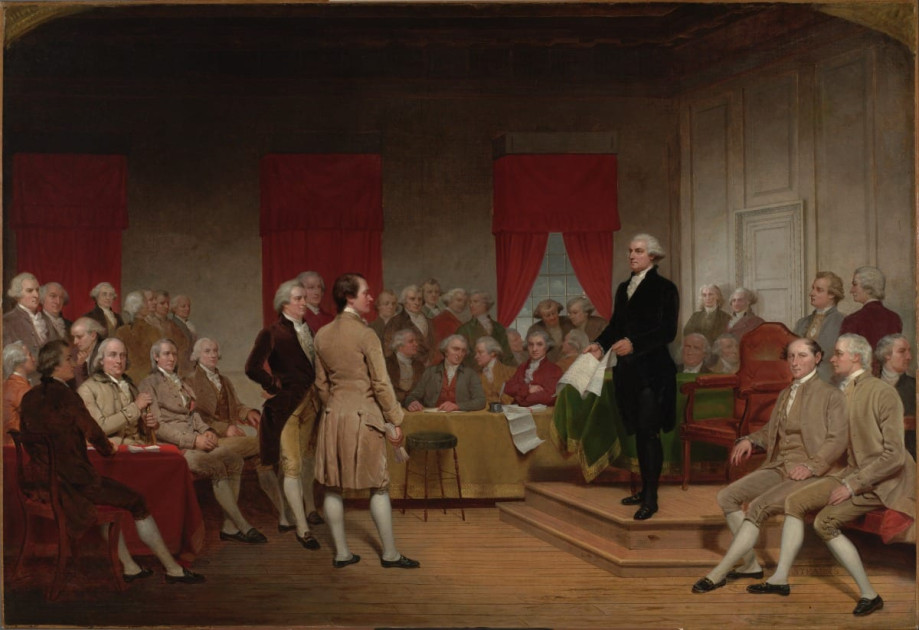
Trump’s Venezuela Gambit Just Rewrote 200 Years of Foreign Policy – The Founders Would Be Stunned
Read more: Trump’s Venezuela Gambit Just Rewrote 200 Years of Foreign Policy – The Founders Would Be StunnedPresident Trump calls it the “Trump Corollary to the Monroe Doctrine.” The operation that captured Venezuelan President Nicolás Maduro – no congressional authorization, no declaration of war, military force on foreign soil, followed by announced plans to “run the country”…
-
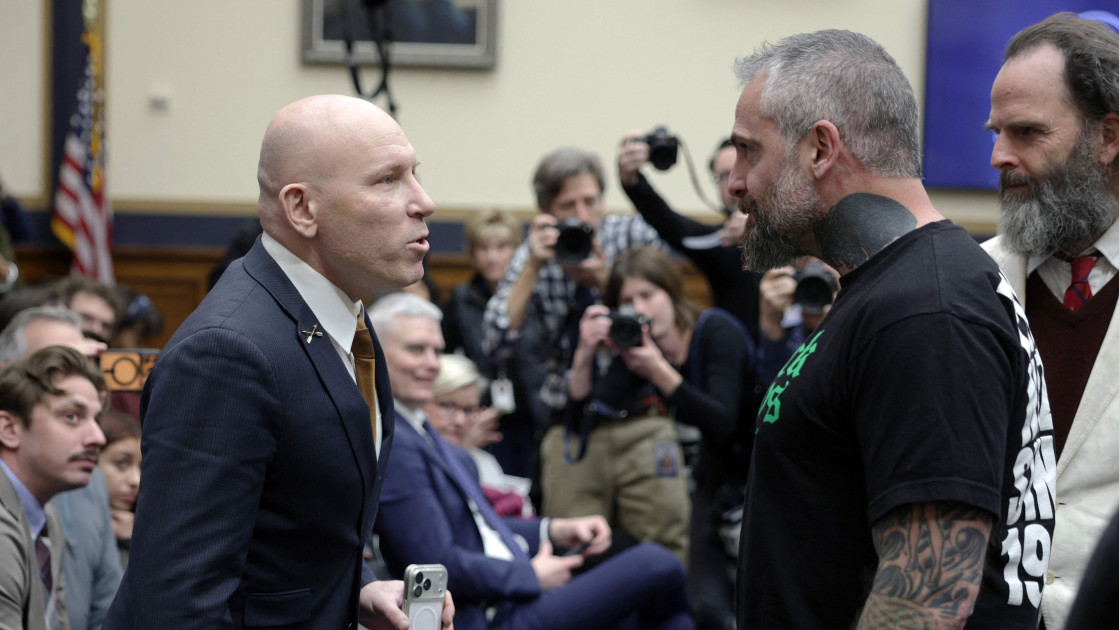
‘Mortal Enemies’: Watch the Moment a Former DC Cop Lunged at an Activist During the Jack Smith Hearing
Read more: ‘Mortal Enemies’: Watch the Moment a Former DC Cop Lunged at an Activist During the Jack Smith HearingYou might expect a congressional hearing on legal procedure to be dry, but today’s session with former Special Counsel Jack Smith proved that the wounds from January 6th are nowhere near healed—and they are liable to reopen at a moment’s…
-

Trump Administration Admits DOGE Accessed Private Social Security Data for Political Use
Read more: Trump Administration Admits DOGE Accessed Private Social Security Data for Political UseA startling admission in federal court has shattered the silence surrounding the Trump administration’s most secretive cost-cutting initiative. For the first time, government officials have acknowledged that members of the Department of Government Efficiency (DOGE) bypassed agency protocols to access…
-

Barron Trump’s Bedroom and the FBI: Did the Mar-a-Lago Raid Break Every Rule?
Read more: Barron Trump’s Bedroom and the FBI: Did the Mar-a-Lago Raid Break Every Rule?The quiet intensity of a high-stakes Congressional hearing room was shattered Thursday as the details of a 2022 federal operation were laid bare before the nation. With the former Special Counsel seated just feet away, lawmakers revisited a moment that…
-

Does the Constitution Protect Voters from Deception? Richmond Governor Campaigned Moderate, Once Elected Governs Hard Left
Read more: Does the Constitution Protect Voters from Deception? Richmond Governor Campaigned Moderate, Once Elected Governs Hard LeftThe transition of power in Richmond has moved with a speed that has left the Commonwealth’s political establishment breathless. Within hours of her inauguration, Governor Abigail Spanberger moved to dismantle years of Republican policy, triggering a fierce debate over whether…
-

Trump Fired a Fed Governor, Now SCOTUS Has to Decide If He Can Actually Do That
Read more: Trump Fired a Fed Governor, Now SCOTUS Has to Decide If He Can Actually Do ThatPresident Trump fired Federal Reserve Governor Lisa Cook on January 21, his first full day back in office. The termination letter cited “poor performance” and “low intelligence.” Cook sued within hours, arguing the president has no constitutional authority to fire…
-
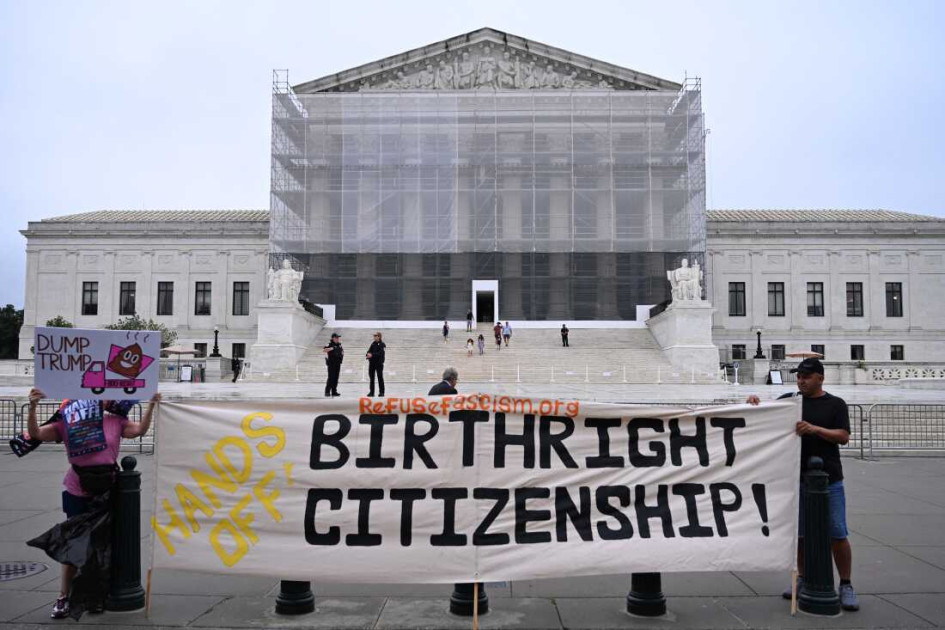
The “Impossible Task”: Why Trump’s One-Year-Old Order Might Be Doomed
Read more: The “Impossible Task”: Why Trump’s One-Year-Old Order Might Be DoomedIt sits in legal purgatory, a signature on a page that could fundamentally rewrite the definition of what it means to be an American, waiting for nine justices to finally say the words they have spent a year avoiding. The…
-

Congressional Leaders Unveil $1.2 Trillion Spending Bill Amid Progressive ICE Revolt
Read more: Congressional Leaders Unveil $1.2 Trillion Spending Bill Amid Progressive ICE RevoltThe clock in the Capitol Rotunda is ticking toward a January 30 deadline, but the sound of pens hitting paper on a $1.2 trillion spending deal has been drowned out by the echoes of gunfire in Minneapolis. While Congressional leaders…
-

DOJ Challenges Minnesota Lawsuit Seeking to Limit ICE Surge
Read more: DOJ Challenges Minnesota Lawsuit Seeking to Limit ICE SurgeA political and legal firestorm has transformed the Twin Cities into a battlefield over the very nature of American federalism. As thousands of federal agents surge into Minnesota, a high-stakes standoff in federal court is poised to decide whether a…
-
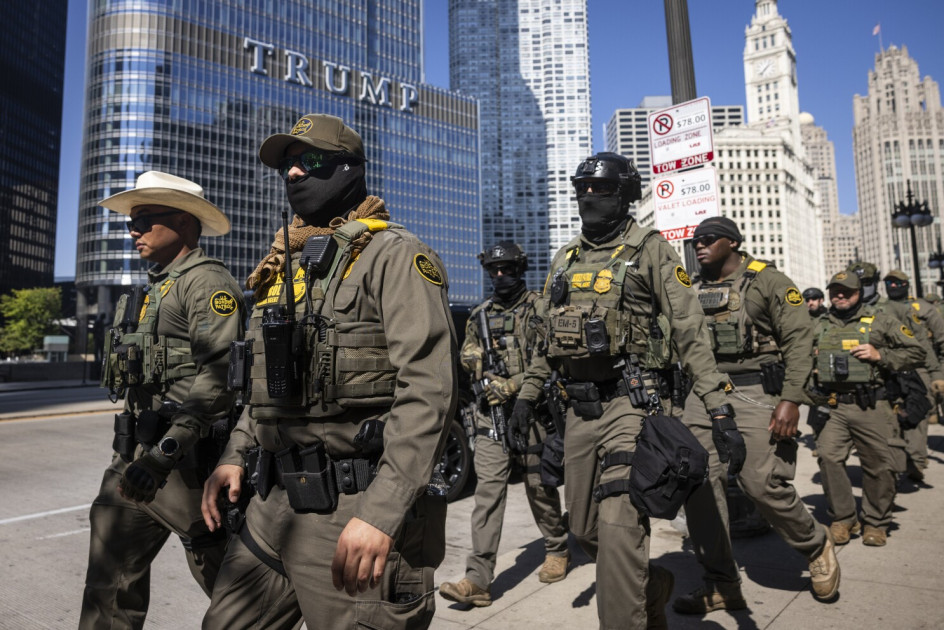
Article II Unbound: Is Trump Redefining the Presidency Through Force?
Read more: Article II Unbound: Is Trump Redefining the Presidency Through Force?From the fortified streets of Caracas to the protest-choked avenues of Minneapolis, the American presidency is undergoing a radical stress test. In a matter of weeks, President Donald Trump has asserted a sweeping interpretation of Article II powers that challenges…
-

Read Trump’s texts to Norway prime minister here on Greenland, Nobel
Read more: Read Trump’s texts to Norway prime minister here on Greenland, NobelThree days after accepting the Nobel Peace Prize on behalf of Venezuelan opposition leader María Corina Machado, President Trump received a text from Norway’s prime minister asking him to de-escalate tariff threats against eight countries including Norway. Trump’s response, sent…
-

New CNN Poll says Trump is the worst President in history. Do you believe that?
Read more: New CNN Poll says Trump is the worst President in history. Do you believe that?Fifty-eight percent of Americans call Donald Trump’s first year back in the White House a failure. Fifty-five percent say his policies made the economy worse. Sixty-four percent say he hasn’t done enough about the cost of living that actually matters…
-

Ilhan Omar’s Explosive Remarks Ignite Treason Debate Amid ICE Crackdown
Read more: Ilhan Omar’s Explosive Remarks Ignite Treason Debate Amid ICE CrackdownThe rhetorical war over the federal enforcement surge in Minnesota reached a fever pitch on Friday when Representative Ilhan Omar (D-Minn.) referred to the country as the “U.S. God—- States” during a highly emotional field hearing. Her comments, delivered alongside…
-
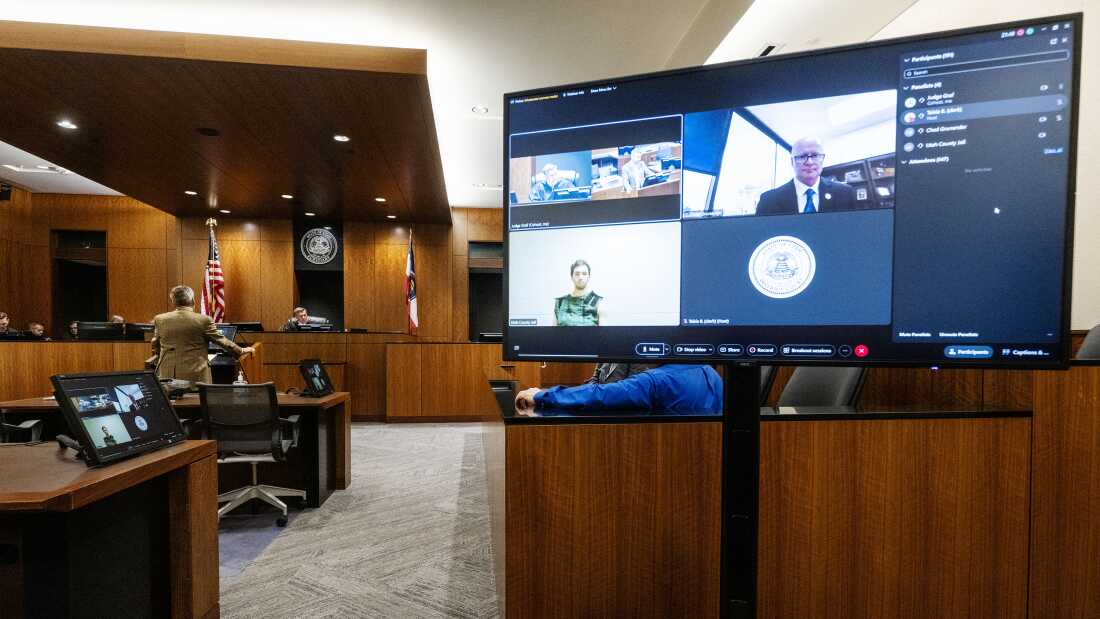
Defense Tries To Stall Justice For Charlie Kirk With Last-Minute Legal Tricks
Read more: Defense Tries To Stall Justice For Charlie Kirk With Last-Minute Legal TricksCan You Prosecute a Murderer if Your Child Was at the Crime Scene? The Legal Battle Rocking the Tyler Robinson Trial The air in the courtroom shifted the moment the defense team stood up, not to argue their motion, but…
-
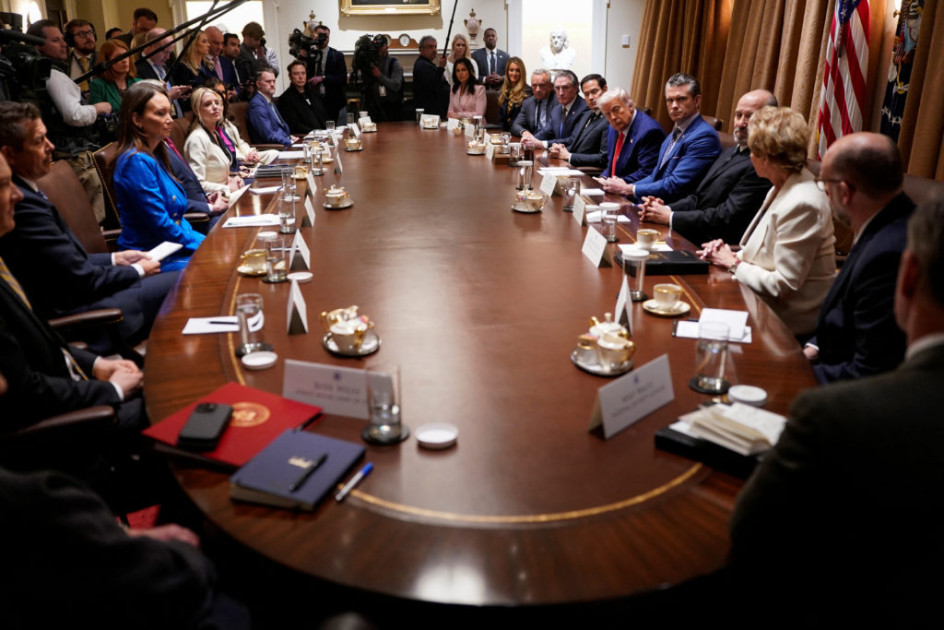
“Breathtaking” and “Illegal”: The Boston Courtroom Where a Judge Just Accused the Cabinet of Conspiring Against the Constitution
Read more: “Breathtaking” and “Illegal”: The Boston Courtroom Where a Judge Just Accused the Cabinet of Conspiring Against the ConstitutionIt was supposed to be a routine procedural hearing to determine how to fix a legal error, but it quickly spiraled into a blistering, historic rebuke that accused the highest levels of government of a conspiracy against the Bill of…
-
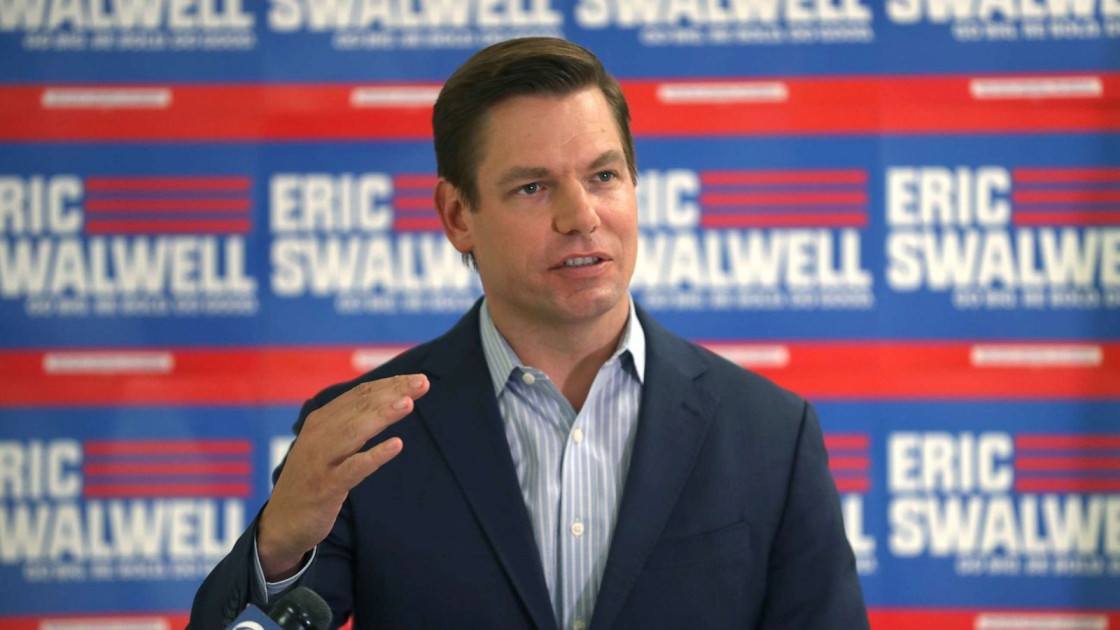
Eric Swalwell Threatens to Arrest ICE Agents For Kidnapping in Radical Governor Bid
Read more: Eric Swalwell Threatens to Arrest ICE Agents For Kidnapping in Radical Governor BidCalifornia Representative Eric Swalwell, now running for Governor, has ignited a firestorm by promising to use state police powers to arrest federal immigration agents, threatening to charge them with “kidnapping” for enforcing U.S. immigration laws. In a recent interview, the…
-

“Calculated Acts of Hatred”: Outrage Explodes After Starbucks Employee Serves Police Officer
Read more: “Calculated Acts of Hatred”: Outrage Explodes After Starbucks Employee Serves Police OfficerThe Los Angeles County Sheriff’s Department (LASD) and Starbucks are at the center of a renewed national controversy this week after a deputy was served a cup of coffee featuring a hand-drawn image of a pig—a derogatory slur aimed at…
-

“I Will Institute the Insurrection Act”: Trump Issues Ultimatum to Minnesota Leaders as Minneapolis Burns
Read more: “I Will Institute the Insurrection Act”: Trump Issues Ultimatum to Minnesota Leaders as Minneapolis BurnsThe confrontation between the White House and the State of Minnesota has reached its most dangerous inflection point yet. On Thursday morning, President Donald Trump explicitly threatened to invoke the Insurrection Act of 1807, a move that would allow him…
-

FOLLOW THE MONEY: Feds Expose $130M Somali Cash Pipeline in Ohio as Walz’s ‘Fraud State’ Unravels
Read more: FOLLOW THE MONEY: Feds Expose $130M Somali Cash Pipeline in Ohio as Walz’s ‘Fraud State’ UnravelsFederal investigators have uncovered a massive new branch of the illicit cash-smuggling operation that has already rocked Minnesota, tracing millions of dollars to a second major hub: Columbus, Ohio. Homeland Security officials confirmed to Just the News that Transportation Security…
-

SCOTUS Just Heard the Trans Sports Case – And One Side Couldn’t Even Define “Sex”
Read more: SCOTUS Just Heard the Trans Sports Case – And One Side Couldn’t Even Define “Sex”Military snipers stood watch on the Supreme Court roof Tuesday while two crowds below screamed at each other. One side chanted “Trans! Trans! Trans!” The other shouted “Stop cutting off the breasts!” Inside, lawyers for transgender athletes spent two hours…
-

Supreme Court Rules GOP Candidates Have Right to Sue States Over ‘Election Month’ Ballot Counting
Read more: Supreme Court Rules GOP Candidates Have Right to Sue States Over ‘Election Month’ Ballot CountingThe Supreme Court has handed Republicans a significant procedural victory ahead of the 2026 midterms, ruling that candidates for federal office have the legal right to sue state election boards over how ballots are counted. In a 7-2 decision issued…
-

“WOKE CHURCH GIVES CASH”: Maryland Diocese Handing Out $50K ‘Reparations’ Checks While Democrats Fight Over State Payouts
Read more: “WOKE CHURCH GIVES CASH”: Maryland Diocese Handing Out $50K ‘Reparations’ Checks While Democrats Fight Over State PayoutsThe Episcopal Diocese of Maryland has announced it is accepting applications for its fifth round of reparations grants, marking another step in the religious organization’s sustained effort to financially atone for the legacy of slavery and systemic racism. The initiative,…
-

Internal Bleeding vs. “Refrigerator Door”: Medical Details Escalate War of Words Between DHS and Mayor Frey Over ICE Shooting
Read more: Internal Bleeding vs. “Refrigerator Door”: Medical Details Escalate War of Words Between DHS and Mayor Frey Over ICE ShootingThe battle over the death of Renee Nicole Good has moved from the street corner where she died to the medical charts of the agent who shot her. In a direct rebuttal to Minneapolis Mayor Jacob Frey’s dismissive comments, the…
-

Biology vs. Identity: The High Court Wrestles with Title IX, “Immutable Sex,” and the Future of Women’s Sports
Read more: Biology vs. Identity: The High Court Wrestles with Title IX, “Immutable Sex,” and the Future of Women’s SportsThe Supreme Court’s conservative supermajority signaled on Tuesday that it is prepared to uphold state laws banning transgender females from competing in women’s and girls’ sports. During more than three hours of intense oral arguments, the justices probed the collision…
-
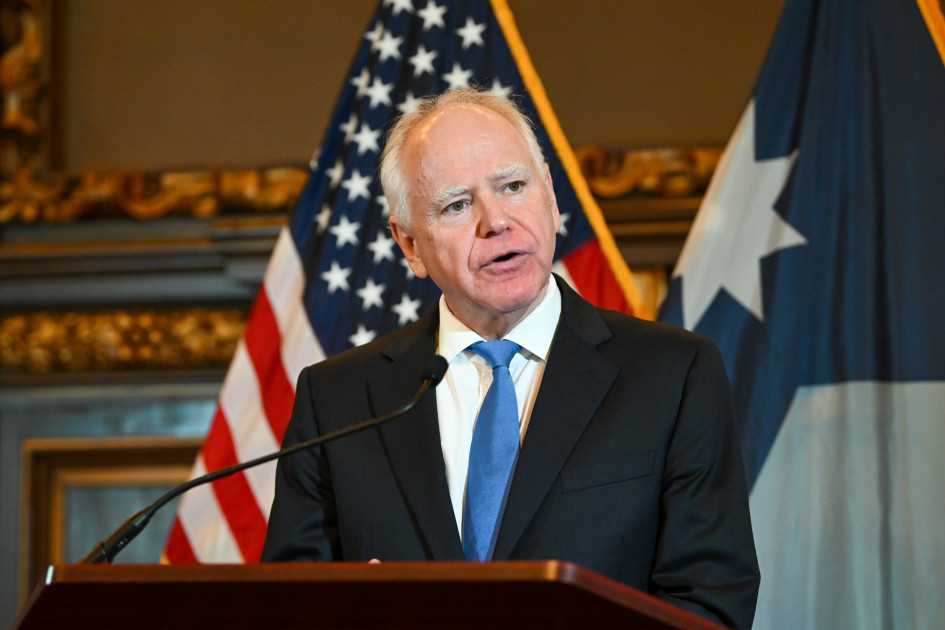
“Fascinating” Flip-Flop: Walz Praises Resigning Prosecutor Just Days After Suggesting He Should Be Fired
Read more: “Fascinating” Flip-Flop: Walz Praises Resigning Prosecutor Just Days After Suggesting He Should Be FiredIn the volatile world of Minnesota politics, a week is a lifetime. Just seven days ago, Governor Tim Walz stood before reporters and suggested U.S. Attorney Joe Thompson should be fired for “defamation.” On Tuesday, he took to social media…
-
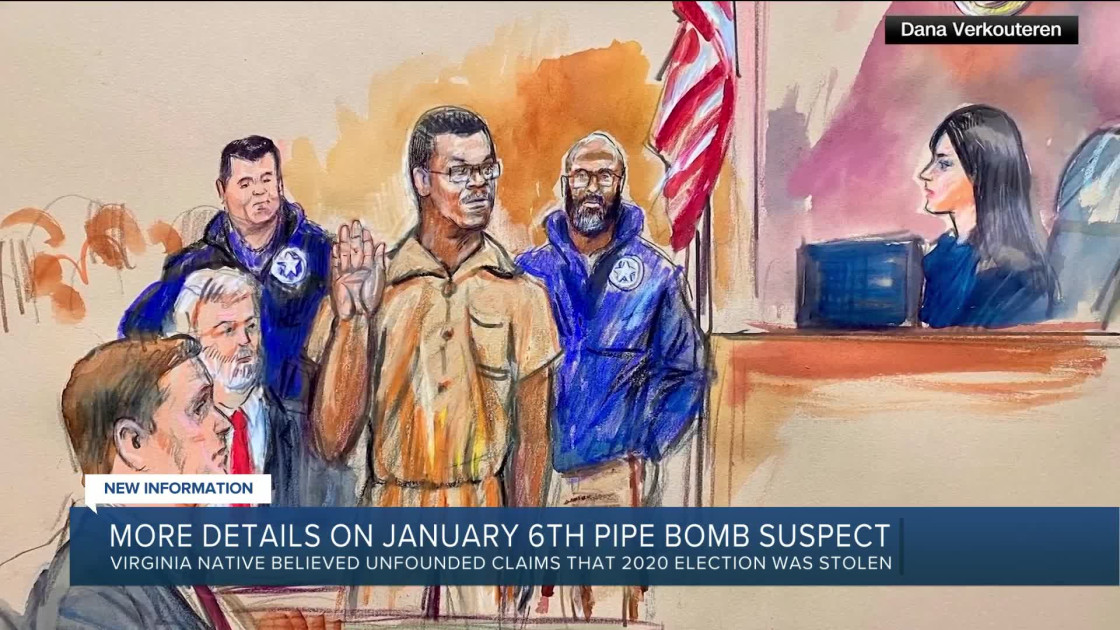
The Pardon Gamble: Why the DC Pipe Bomb Suspect Entered a Not Guilty Plea Despite an Alleged Confession
Read more: The Pardon Gamble: Why the DC Pipe Bomb Suspect Entered a Not Guilty Plea Despite an Alleged ConfessionIn a federal courtroom just blocks from where two viable pipe bombs were discovered five years ago, the man accused of planting them formally denied the charges on Friday. Brian J. Cole Jr., the 30-year-old Virginia man arrested in December…
-

Kelly Sues Hegseth Over Pension Cuts in Historic Clash of Branches
Read more: Kelly Sues Hegseth Over Pension Cuts in Historic Clash of BranchesIn a legal escalation that pits the Article I legislative branch directly against Article II executive power, Senator Mark Kelly (D-Ariz.) has filed a federal lawsuit against War Secretary Pete Hegseth and the newly renamed War Department. The suit seeks…
-

The Secret Funding Loophole: How Kristi Noem Is Using a Special Trump Law to Block Democrat Oversight
Read more: The Secret Funding Loophole: How Kristi Noem Is Using a Special Trump Law to Block Democrat OversightThe battle over who gets to see inside the nation’s immigration detention centers has erupted again in federal court. House Democrats filed an emergency motion on Monday asking a judge to block a new directive from DHS Secretary Kristi Noem…
-

“It’s Simple, We Kill JD Vance”: University-Funded Radio Host Resigns After Secret Service Investigates Bluesky Threat
Read more: “It’s Simple, We Kill JD Vance”: University-Funded Radio Host Resigns After Secret Service Investigates Bluesky ThreatA single sentence posted on the social media platform Bluesky has ended a radio host’s volunteer career and drawn the scrutiny of federal law enforcement. The Secret Service confirmed to Fox News Digital that it is aware of a threat…
-

Portland’s Police Chief Broke Down in Tears: When Local Police Confirm What They Didn’t Want to Believe About Illegal Immigrants
Read more: Portland’s Police Chief Broke Down in Tears: When Local Police Confirm What They Didn’t Want to Believe About Illegal ImmigrantsPortland Police Chief Bob Day removed his glasses mid-sentence. His voice cracked. Tears rolled down his face as he confirmed what the Department of Homeland Security had been saying all along. The two Venezuelan illegal immigrants shot by a federal…
-

Your Credit Card Rate Just Got Capped at 10% – Except It Didn’t (Here’s Why)
Read more: Your Credit Card Rate Just Got Capped at 10% – Except It Didn’t (Here’s Why)The Truth Social post went out Friday night. Credit card interest rates would be capped at 10% starting January 20. No legislation. No congressional vote. Just a presidential announcement that Americans would “no longer be ‘ripped off’ by Credit Card…
-

The “Wacko” Verdicts: Legal Experts Warn of “Biggest Scandal in Litigation History” if Supreme Court Doesn’t Rescue Big Oil
Read more: The “Wacko” Verdicts: Legal Experts Warn of “Biggest Scandal in Litigation History” if Supreme Court Doesn’t Rescue Big OilA procedural battle at the Supreme Court has suddenly morphed into a high-stakes war for the future of the American energy industry. At the center of the docket is a decision that could either insulate major oil companies from what…
-

‘Wholly Un-American’: DNC and RNC Go to War at Supreme Court Over When Election Day Actually Ends
Read more: ‘Wholly Un-American’: DNC and RNC Go to War at Supreme Court Over When Election Day Actually EndsThe Democratic National Committee (DNC) has formally entered the legal fray in a Supreme Court case that could fundamentally alter how American elections are conducted. In an exclusive amicus brief filed Thursday, the DNC blasted a Republican-led effort to invalidate…
-
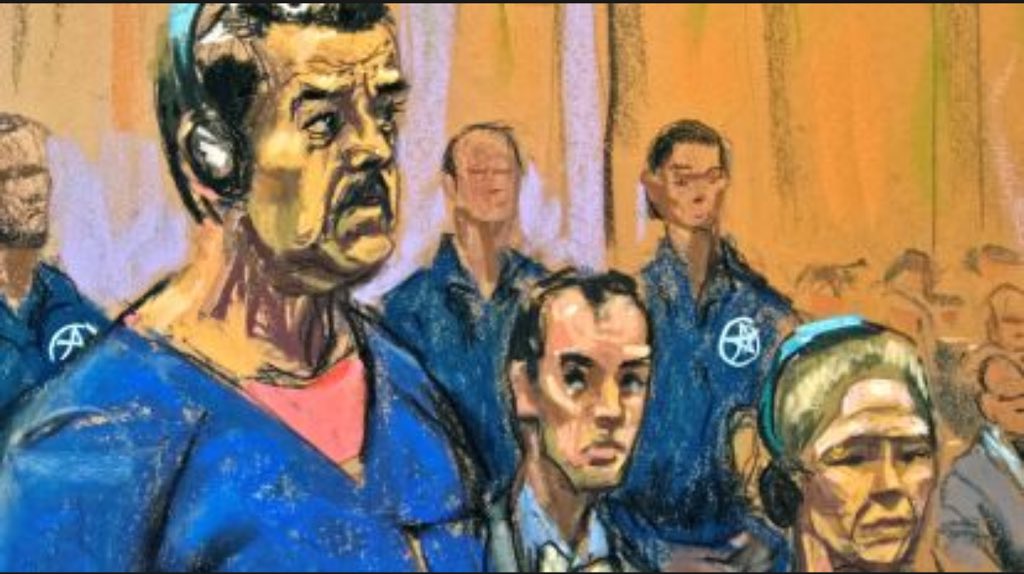
Trump Administration Cites Maduro Indictment in Legal Push to Validate Alien Enemies Act Deportations
Read more: Trump Administration Cites Maduro Indictment in Legal Push to Validate Alien Enemies Act DeportationsThe Trump administration has unveiled a novel legal theory to defend its most controversial immigration crackdown, arguing in a new court filing that the indictment of Venezuelan leader Nicolás Maduro proves his regime and the Tren de Aragua (TdA) gang…
-
“Get Out of the Car”: Graphic Video Released in Fatal ICE Shooting of Minneapolis Activist Amid “Domestic Terrorism” Dispute.
Read more: “Get Out of the Car”: Graphic Video Released in Fatal ICE Shooting of Minneapolis Activist Amid “Domestic Terrorism” Dispute.The simmering conflict between the Trump administration’s immigration enforcement teams and local resistance groups in the Twin Cities boiled over into lethal violence this week, culminating in the release of graphic video footage on Friday that captured the final moments…
-

Trump “Jokes” About Canceling the 2026 Midterms – Can a President Actually Do That?
Read more: Trump “Jokes” About Canceling the 2026 Midterms – Can a President Actually Do That?The setting was the Kennedy Center. The audience was House Republicans at their annual retreat. The date was January 6, 2026 – five years exactly since the Capitol attack. And the president mused aloud about canceling the 2026 midterm elections.…
-

‘Ethically Prohibited’: Why Did Nick Reiner’s Attorney Just Quit While Proclaiming His Innocence?
Read more: ‘Ethically Prohibited’: Why Did Nick Reiner’s Attorney Just Quit While Proclaiming His Innocence?The high-profile murder prosecution of Nick Reiner took a sudden constitutional turn in Los Angeles Superior Court on Wednesday, as his renowned defense attorney withdrew from the case under mysterious ethical circumstances. Nick Reiner, 32, accused of the double homicide…
-

Fatal ICE Shooting in Minneapolis: A Chronology of the Clash Between Federal Mandates and State Sovereignty
Read more: Fatal ICE Shooting in Minneapolis: A Chronology of the Clash Between Federal Mandates and State SovereigntyThe cold January air in Minneapolis has been punctuated by the sound of whistles, sirens, and, most recently, gunfire. What started as a massive federal initiative to enforce immigration law has rapidly devolved into a jurisdictional war that threatens the…
-

ICE Shooting Leaves Woman Dead, Mayor Demands ‘get the f— out of Minneapolis,’ Rejects DHS Self-Defense Statement
Read more: ICE Shooting Leaves Woman Dead, Mayor Demands ‘get the f— out of Minneapolis,’ Rejects DHS Self-Defense StatementThe streets of Minneapolis have become the latest flashpoint in a high-stakes constitutional drama that pits local executive authority against federal immigration enforcement. On Wednesday, Mayor Jacob Frey issued a profanity-laced demand for federal agents to exit the city following…
-

Trump Pardoned a Democrat to Keep Him Out of Jail – Now He’s Running Against Him
Read more: Trump Pardoned a Democrat to Keep Him Out of Jail – Now He’s Running Against HimThe pardon came in November 2025. The primary challenge came two months later. The constitutional power of presidential clemency collided with raw political calculation—and Trump’s Truth Social post explaining it became a case study in how mercy and politics intertwine.…
-

Get Woke, Go Broke? Minnesota Hotel Deals With Consequences After Refusing ICE Agents
Read more: Get Woke, Go Broke? Minnesota Hotel Deals With Consequences After Refusing ICE AgentsIn a brutal demonstration of federal purchasing power, the General Services Administration (GSA) has effectively erased a Minnesota hotel from the government marketplace. The Hampton Inn Lakeville has been terminated from all federal lodging programs after it refused to accommodate…
-

Trump Just Froze $10 Billion to Blue States Over Fraud Fears – Can a President Do That?
Read more: Trump Just Froze $10 Billion to Blue States Over Fraud Fears – Can a President Do That?The letters went out Monday morning. California, Colorado, Illinois, Minnesota, and New York would lose over $10 billion in federal funding for child care and social services. The reason cited: fraud concerns. The political pattern: all five are Democratic-led states.…